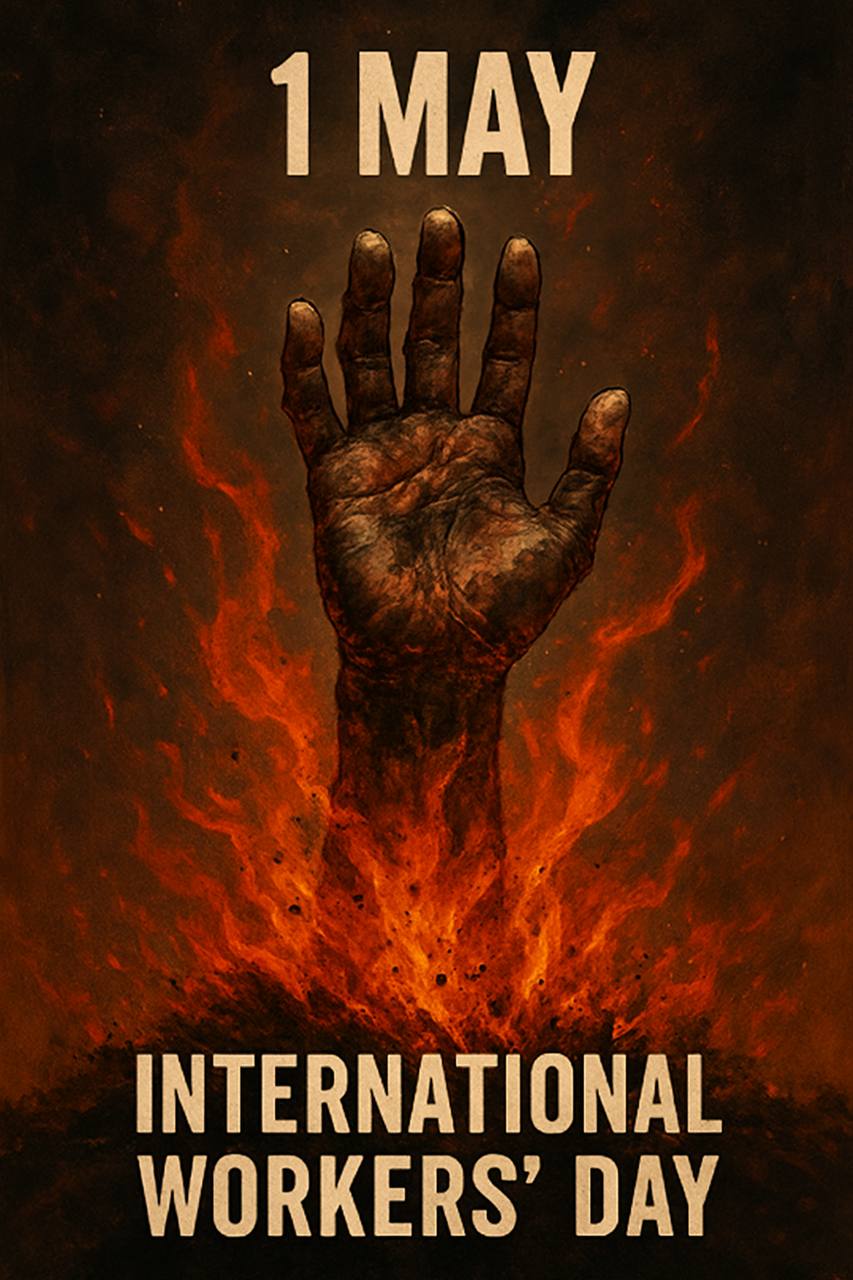May 1st: A Worker’s Story Without a Homeland
In some countries, May 1st is a celebration.
In some places, they hand out flowers, give the day off, smile.
Labor Day is supposed to be a day of gratitude, rest, and dignity.
But for us, this day means something else.
Not a day of joy A day for counting scars.
We have no flowers in our hands.
What we have are calloused hands, knees bent under the weight of life, and a throat gone dry from swallowing too many screams.
We face the man who, after twelve hours of labor, still cannot wipe the shame from his face before his child.
We face the woman who works in silence, who is afraid, who knows how to hide her choking tears behind a rehearsed smile because even a single protest might cost her everything.
And we face a generation that has learned to breathe, but not to shout.
Because any voice too loud ends in prison,
revoked permits or a letter that smells like deportation.
Homeland?
In Iran, a worker’s home has always trembled. Here, the worker is just a disposable body not a bearer of rights,
not a voice,
not a future.
Striking is a crime.
Demanding justice is labeled sedition. Independent unions are accused of infiltration.
In this land, labor justice is answered with boots and batons. The worker is in no news broadcast, no lawbook, no budget.
The worker stands always in line for bread,
for broken promises, for silence.
Then… Bandar Rajaei burned
That morning, fire boiled the asphalt of the port, shattered the bones of the laborers,
and reminded us once again a worker’s life, in this country, still has no value.
No media told the truth.
No official resigned.
No government answered.
At least hundred workers, in their uniforms,
burned into the ground.
And we still ask ourselves:
Must labor be paid for with flesh?
And when the homeland refuses you, exile is no warm embrace.
In Sweden, thousands of Iranians who obtained work permits through Spårbyte live with a quiet precision. They are the first to rise in the morning, they clean, they cook, they build, they learn the language, they pay taxes, they obey every law.
And yet—
something heavy sits on their chests:
being invisible.
And worse still: being uncertain.
A shift in policy, a single letter, a misplaced date and years of life can suddenly hang in the air, untethered.
Maybe Not official deportation—but an ever-present threat.
An ambiguity that, like smoke,
silently burns the lungs of hope.
And now, May 1st…
It’s not a holiday. It’s not a press release.
For us, this day is a reckoning.
A reminder that the worker in Iran, and the migrant worker in exile, are both left unprotected with unstable rights,
voiceless claims, and a future that climbs uphill, cracked and crooked by the weight of survival.
But know this:
We are tired— but not silent.
We are alone— but not voiceless.
We are exiled by bread and labor but still, we stand.
From the streets of Shush to the nights of Stockholm, from the stomp of security boots to the cold ink of bureaucratic memos we ask only one thing:
To be recognized.
To be seen.
And to at least have the right to stay,
in the world we have helped carry on our backs.
Armin Enayati

